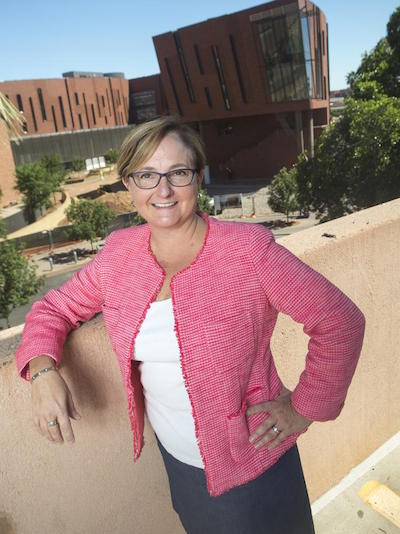The Carey School has become known for having a unique interdisciplinary approach to the business major. Why did the school decide to go in this direction?
ASU has been on a path for the last decade-plus to embrace interdisciplinary degrees, and this is one of the best ways we’ve done it. It started originally when we become of the first schools to offer a bachelor of arts (BA) in business with a concentration in sustainability.
We have the typical business degrees you’d expect, like a bachelor of science (BS) in economics, accounting, marketing and management. Then we started offering several years ago a BA in business with the same set of courses, but instead of having upper division courses in finance or supply chain management, you’d be taking courses outside of the business school. For example, we now have a BA in business with a concentration in law, which is great for students who have an interest in political science. With this degree, you get to take political science classes and a couple of business law courses taught by our law faculty, which is exciting because the law school doesn’t offer undergraduates degrees.
Two of our newest interdisciplinary majors are Chinese Language and Culture and Spanish Language and Culture. In these majors students get business courses and all of the basics, but they leave ASU fluent in Mandarin or Spanish, with a deep appreciation for these cultures. We are finding those students are the ones who know they want to have a global business career or work in another country, and need that language and cultural appreciation in order to be a better business person there.
These interdisciplinary types of degrees just make students’ career options so much wider when they get out of school. It’s a good sell for students, and they really seem to like it. There’s about a fifty-fifty breakdown with the BA versus BS business degrees. We have just about 11,000 undergraduates in business. There are a lot of folks really responding to the interdisciplinary business degrees, and others still doing more traditional ones.Do you believe being a direct admit business program — meaning students start in the business school their freshman year – gives you an advantage in the undergraduate business school marketplace?
We think it does. We used to be pre-business, and then converted to direct admit. We found we were getting stronger students in because some of the very best students wanted to know they were going to get directly into the business school. I think it is a real asset to have all four years, particularly with the degrees with language specializations. It gives you the opportunity to go very deep.
You’re the business school’s first female dean. How does that influence how you approach certain things on campus?
I think we’re very focused on female student representation. At the undergraduate level, we have a breakdown of 49% female and 51% male students. In some of the majors we don’t have the representation I feel is important to have, so I’m making an effort in finance and in computer information systems to really up the number of females.
The other thing of concern to me is that there aren’t often as many female faculty as male faculty in business schools. So we are trying to make sure that young women taking business classes can see themselves in the front of the room. It may not be just with faculty, but with guest speakers. We’ve formed a women’s circle here in Phoenix that brings professional women from all over the metropolitan area together with female faculty. They talk about what faculty is doing to create a wider network for our faculty and help bring female executives in front of the classroom.













Questions about this article? Email us or leave a comment below.